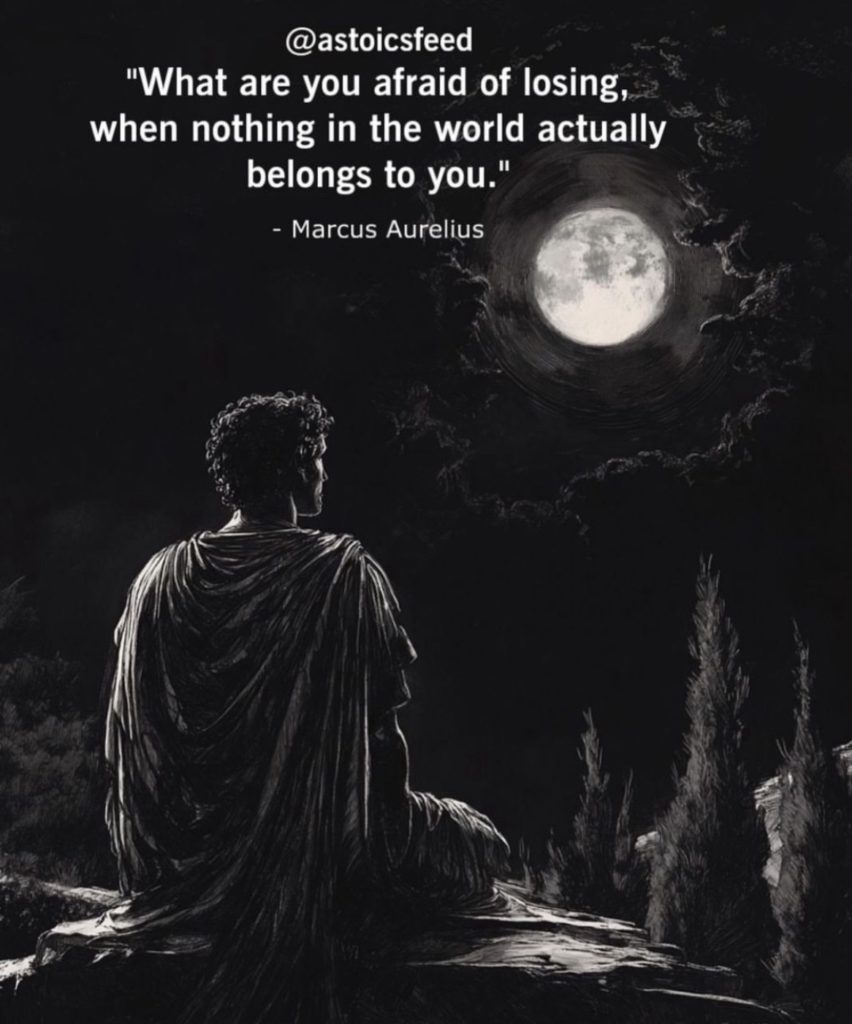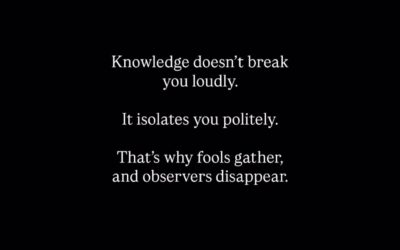Marcus Aurelius’ words, “What are you afraid of losing, when nothing in the world actually belongs to you?” strike at the heart of something I’ve come to understand: everything is temporary. Whether it’s possessions, people, or even our own lives, nothing is guaranteed to stay. And the more we hold on, the more anxious we become.
This idea echoes what I’ve learned in Buddhism—attachment causes suffering. The desire to control what’s outside of us is a losing battle. Realizing this doesn’t just ease anxiety, it creates a kind of freedom that can’t be bought or protected. It’s the freedom to choose how we respond to life, even if that means letting go or not responding at all.
For a long time, I thought having more—whether material things or a sense of security—would make me happier. But the truth is, the more I owned, the more trapped I felt by the need to protect it all. That’s where minimalism makes sense: less attachment means less to worry about, less to lose, and more space to be present in the moment.
The journey to this realization wasn’t easy. It’s painful to strip away the illusions we cling to, but what lies on the other side is worth it. The kind of freedom that comes from understanding impermanence? It’s far more valuable than any possession or status I could ever protect.






0 Comments